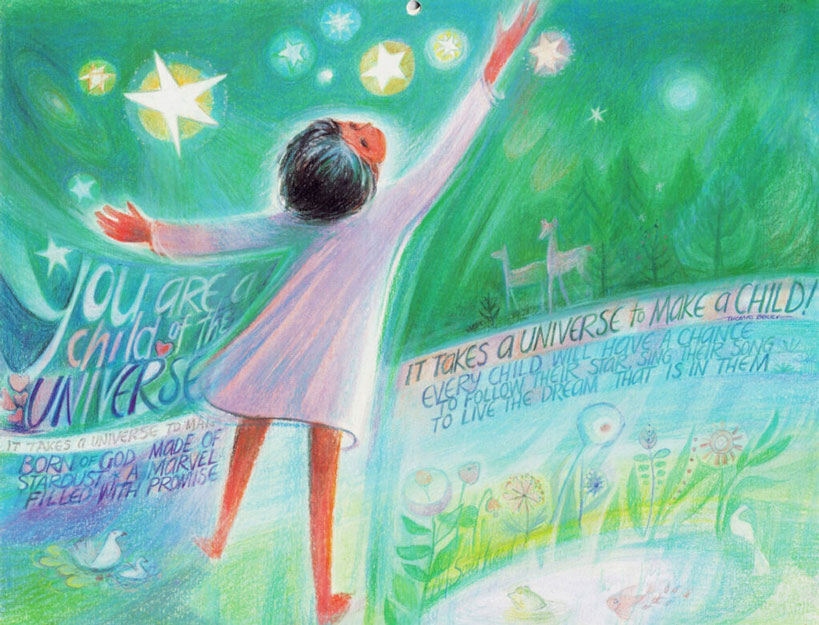May 9, 2021
Every progressive, inclusive thought is only as powerful as the ritual it permeates. – Swati Bhattacharya

As our Muslim friends around the world prepare to celebrate the end of Ramadan this week, I have been reflecting on the importance of bringing a variety of festivals to children. I believe it is essential today to push beyond multicultural books and dolls to offer dynamic, multifarious experiences of how people look, relate and live. Books and dolls are certainly good and simple ways to expose our children to a diverseness of identity, but if the concept stops there, frankly, it’s a rather dead concept. Children need to make living connections with people of all walks of life. When children live deeply within these relationships, and broaden their relationship to the world, they begin to develop a feeling life that is ultimately connected to humanity with love.
Festivals represent a living experience of a culture because they are centered in activity and relationship. This is especially important for young children who experience the world through their senses and learn through doing. I have appreciated bringing my children to join friends in their festivals, and discovering how their festivals have been shaped by their own traditions. When my oldest son was very young, we gathered twice for passover seder and potluck dinner with a group of my female friends. Listening to the words of a women-centered Haggadah, surrounded by mamas and children sharing in the ritual, I was deeply touched. The importance of their religion and ethnicity was palpable and intensely beautiful. Opportunities like this one have come, sprinkled here and there through my sons’ lives, and have each made a subtle, but very important impact.
Some say sharing food creates a bridge from heart to heart. I agree, and would go further to say that sharing a festival meal with a friend can be a bridge from the heart of one culture to another. And so it is with sharing in the rituals and traditions — for a short while, we are stepping into the shoes of another to partake in something that is deeply special to them, and in turn, our horizons and hearts are opened wider. When our children are participating with us, the love and connection created is like the air they breathe. They don’t even need to intellectually know the “whats and whys”, the soul of it permeates their being, flowing in and out of them, a pulse of humanity that unifies us all.
When we don’t have someone to celebrate a new festival with, we can certainly experience it through stories. I was so pleased to find that Chinyelu Kunz, founder of the We Nurture Collective and host of their podcast, recently invited Ashley J. May of the Grassroots Morning Garden Project for a conversation about Ramadan. Listening to Ashley share about her family’s traditions and stories of Ramadan was so genuinely warm, it was akin to being welcomed into her home for a visit during the festival. Her stories were rich and enlightening. Ramadan and its purpose came alive in my imagination. As a lasting result, stories like hers that awaken the imagination are woven into the fabric of our own experience and are thus made a part of our personal experience of being human. Chinyelu and Ashley’s conversation inspires me to reach out more actively to bring stories about new festivals to my family, hopefully opportunities to experience them, and to welcome friends to gather for our festival traditions as well.
May our Muslim friends find their Ramadan to have been a beautiful spiritual experience and may you have a joyful Eid al-Fitr!
